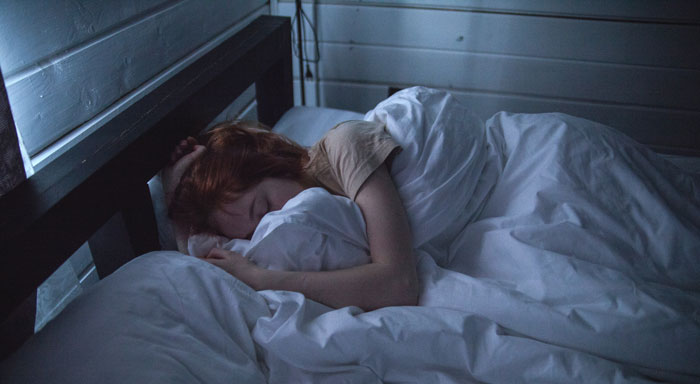If you spend any time on social media, you probably feel like you know the terms “self-care” and “mindfulness” well enough now to write a book. The spawn of wellness influencers has been great for chipping away at the stigmas surrounding mental health — primarily speaking publicly about it. But it has also led to desensitization to true self-care concepts and created room for adverse reactions to self-care terminology. Simply put: picturing a girl in a bathtub with candles and a glass of wine when you think of self-care is problematic.

Self-care and mindfulness are paramount in recovery. But this idea that self-care is rooted in indulgence — an idea that is sponsored by these wellness influencers — is very unhealthy for recovering addicts. Recovering addicts are actually trying to unlearn over-indulgence habits that were staples in their addictions. Recovery requires a healthy relationship with self-care and mindfulness in order for sobriety to survive.
Your Recovery Needs Self-Care
And we’re not talking about putting off your responsibilities while soaking in a lavender-scented bath for an hour. Recovery needs self-care actions that are rooted in medicine and psychological treatment. This self-care is centered on setting goals and boundaries for one’s self-improvement.
Self-care should force you to confront stress and negative emotions and find healthy ways to cope. An addict tries to escape these stressors with their drink or drug of choice. While escaping and chasing the high used to be the sole priority, self-care means prioritizing and attending to your physical and emotional needs. It’s a curb to the downward spiral.
Mental Self-Care Actions:
-
Fellowship
Involving others in your self-care actions seems contradictory. It’s called self-care after all. But surrounding yourself with people who are striving for the same things is essential. Fellowship can help make you feel loved and supported, which is a crucial shift when addiction left you alone and selfish.
-
Take Time Alone
On the other hand, it’s also very necessary to take time for yourself to reflect on your emotions, goals, and challenges. No one is going to be more devoted to your own recovery than you.
-
Practice Gratitude
Recovery doesn’t just happen. It takes hard work. But feeling overwhelmed and facing challenges can be chutes to relapse. Practicing gratitude is a good way to combat that. Reflecting on the things you’re grateful for helps to put struggles into perspective and ward away negative thoughts that may otherwise start to dominate headspace.
Physical Self-Care Actions:
-
Exercise
At an overarching general level, exercise is important for both physical and emotional health. But exercise is especially important in recovery. Exercise actually stimulates the same reward center of the brain that drugs would manipulate in addiction. However, instead of a toxic, addiction-fueling high, exercise helps the body produce a natural and safe “high.”
-
Get Outside
Spending time outside and in nature can help with stress, sleep, and cognitive abilities. The benefits of spending time in nature are heightened for those in recovery, as addiction takes a huge toll on a person’s physical and mental health. Try going on a hike or sitting under some trees at the park to help lower stress, improve immune health, and increase overall mood and happiness.
Rest: A Self-Care Golden Crossroads
Rest and sleep are at the intersection of mental and physical self-care. Both your mental state and your physical state are directly affected by how much sleep you’re getting.
Additionally, substance abuse and sleep disorders go hand-in-hand.

Lack of sleep can increase stress and negatively affect both mood and decision-making, all of which are significant in recovery. Quality sleep helps both the mind and body heal. It’s a huge immune booster that helps to protect your body from illness. It also sets you up for healthy decision-making and problem-solving and gives you room to focus on the work that recovery requires.
Having a structure and routine that support your sobriety is an important part of recovery. Quality sleep needs to be a part of that routine for a healthy recovery. Fortunately, there are things you can do to actively promote better sleep. But just like any other habits, healthy sleep habits take practice and dedication.
Here are a few key habits suggested by the National Sleep Foundation:
- Stick to a sleep schedule (even on the weekends) to regulate your body’s clock.
- Manage exposure to bright light to keep your circadian rhythms in check. Avoid bright light in the evening and force exposure to sunlight in the morning.
- Practice a relaxing activity (away from bright lights) before bed to separate your sleep time from the day’s excitement.
Did you know that tomorrow, August 15th is National Relaxation Day? It’s the perfect opportunity to take time to rest, relax, and practice healthy sleep habits!
Side Note: Bubble Baths are Not the Enemy
A girl holding a wine glass amid rose-colored bubbles should not be the keynote image of self-care. True self-care is about getting up and taking action towards things that contribute to your self-improvement. As sobriety and recovery are the cornerstones of self-improvement for addicts, practicing self-care and mindfulness in recovery is imperative.
But just to be clear, it is okay to wind down and relax with a bubble bath (sans wine) or occasionally treat yourself with ice cream and a mini Netflix binge. Just make sure your awareness of self-care runs deeper than that.
If you or someone you know is struggling with substance abuse, our addiction counselors are available 24/7: 855-737-7363

